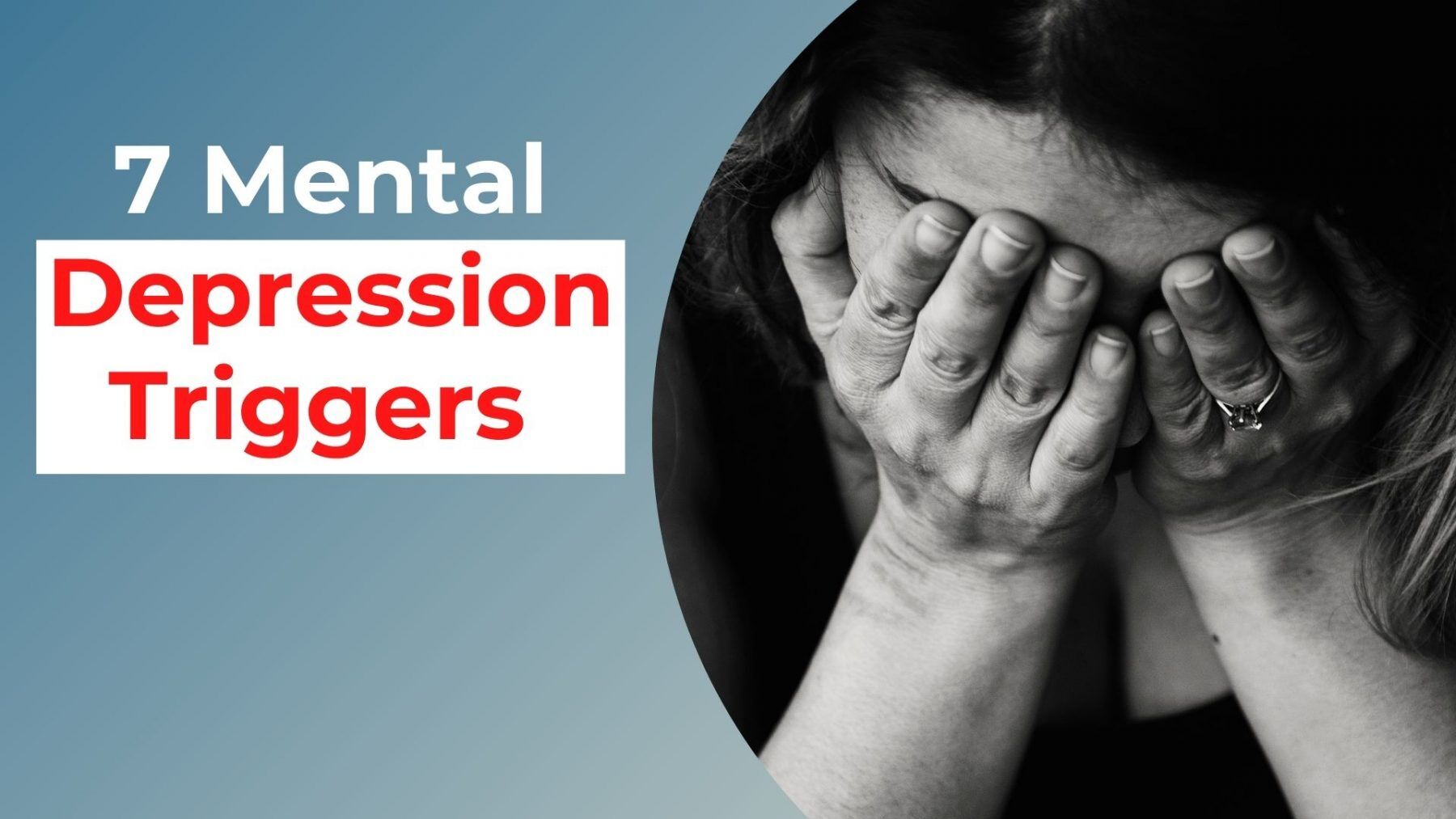It is not always easy to avoid triggers for depression, but it’s important to try.
There are many depression triggers and many people don’t know what they are or how to deal with them.
In this blog article we are looking at the mental side of things.
Now obviously lack of sleep and a bunch of other factors (like seasonal affective disorder) will trigger depression too.
For example, in seasonal affective disorder (SAD) the dark weather in some northern regions like Alaska causes people to have depression.
But in this article we aren’t concerning ourselves with external situations like weather.
We’re going to talk about different mental thought processes which can trigger a depressive episode.
If you can become mindful of these mental processes, then you can shift your way of thinking and improve your mental health!
1 – Rumination
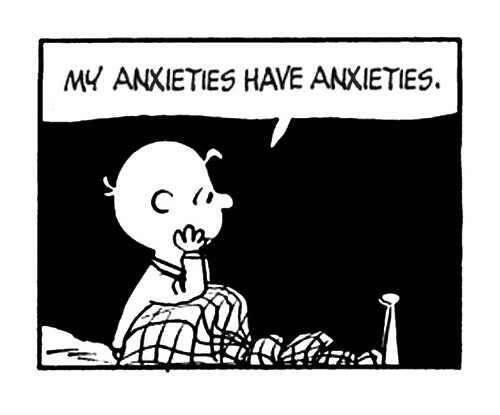
Rumination is the #1 trigger for a depressive episode.
In fact, people who ruminate are more at risk of depression than those who do not.
Rumination is when you constantly think about things that have happened in the past. Or where you worry obsessively about what may happen in the future.
For example, years ago in college I would ruminate if I asked out a girl and she said no.
After asking her out, I would think about what I said, how I could act differently, and I would worry endlessly about the future.
This led to my depression spiraling out of control because I was constantly dwelling on the past or thinking negatively about the future.
Now it’s normal to worry if you did something wrong. It’s normal to worry about how you can do things differently in the future.
But rumination is different from your normal worries.
Rumination is worse than normal thoughts because rumination is much more intense.
People who ruminate will think about the same thing for 24 hours straight sometimes! They won’t be able to sleep at night because they can’t stop thinking!
Even worse, many times people want to stop ruminating but they cannot!
They want to stop repeatedly thinking the same thoughts over and over again because they feel like a broken record. But they cannot stop their mind!
Not being able to stop your mind from thinking can be a huge depression trigger.
Tips To Stop Ruminating
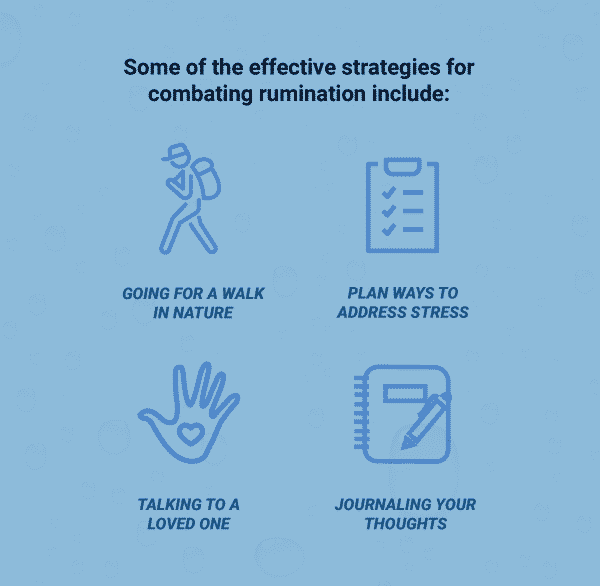
If you can spot your mental habit of rumination then you are in a much better position to do something about it!
There are some great methods for slowing down ruminative thinking, like journaling, which can improve your mental health.
Journaling involves writing everything out. Instead of holding onto these feelings inside where they’ll only get worse, you journal them onto paper! Over time, you begin to see trends and will be in a better position to identify your ruminations!
Talking with friends or family members who can help you process these thoughts also helps. Letting the thoughts go will be a great relief for your mind and heart!
Doing things that are fun or distracting also helps ease the pain of ruminative thinking. Because these things which bring us pleasure take our attention away from whatever is making us unhappy!
If you can break the pattern of rumination then you have much lower risk of depression.
2 – Taking Things Personally
Another very common depression trigger is your ego. You take things too personally.
If you take things too personally then you will naturally start to ruminate. And if you ruminate then you’ll be more likely to have a depressive episode.
Let’s use my example from above to see how taking things personally became a depression trigger for me.
After I ask the girl out, if she rejects me, I would take things personally.
I would think to myself:
- What’s wrong with me that caused her to say no?
- What could have I said differently to make her like me?
- What different clothes should I have worn to make her like me?
Yet all these negative thoughts about how I came up short just makes me fall into depression!
Do you see the pattern?
If I get rejected, I take things personally. I think it’s MY fault that she didn’t like me.
My old self would basically think, “I am THE REASON she didn’t like me”. But do you see how egotistical this is?
(There is a lot of ego in depression, btw, and most people don’t talk about this!)
Instead of taking things personally, I could have NOT taken things personally. Perhaps:
- She’s having a bad day
- She already has a boyfriend
- We just didn’t have enough in common
Tips To Stop Taking Things Personally
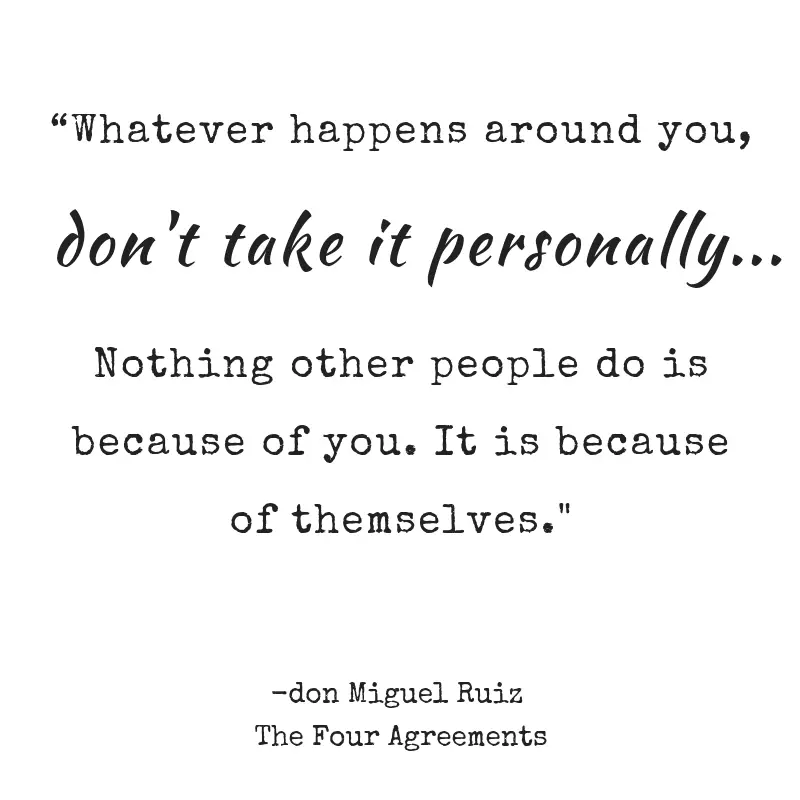
Realize there’s a lot of stuff that you CANNOT control in life.
In my example, I cannot control her mood, emotions, current relationship status, etc…
Since I cannot control all these things, then how can I fully blame myself when I get rejected?
Another common example is the job interview.
You can’t control if the interviewer wants to hire you. It’s just a matter of whether they like your resume, skillset, etc…
If the interviewer is looking for a hardware engineer, and you are a software engineer, then how can you be upset if they don’t hire you! It’s outside of your control!
Now obviously this example is simple whereas life is complicated.
But you get the point. Let go of control. Stop beating yourself up for things you can’t control!
3 – Falsely Thinking You Have NO Control
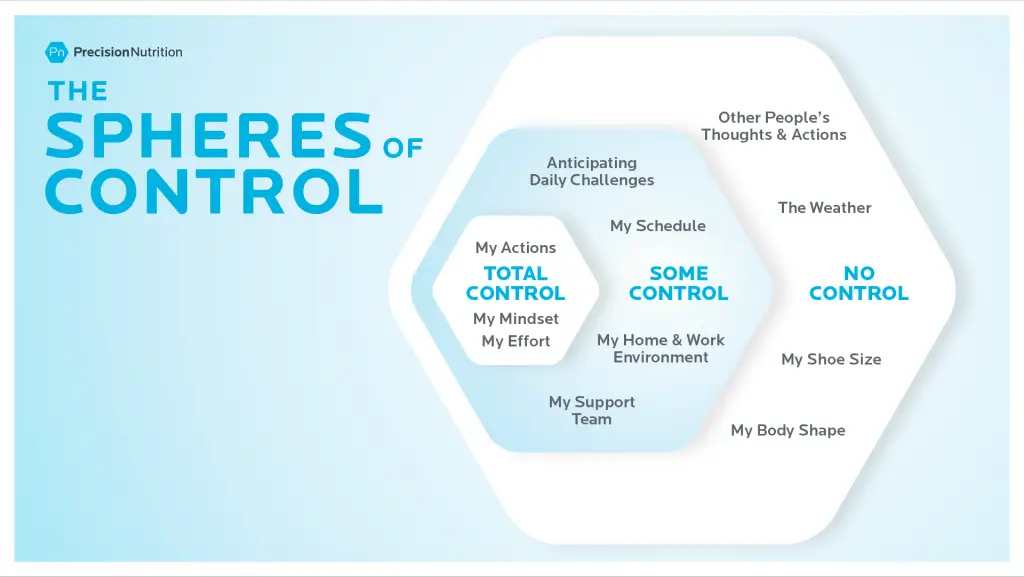
Thinking you have no control is another common trigger for depression.
Just like in the point above, it’s easy for people to think they have too LITTLE or TOO MUCH control.
- If you think you have too much control, this is where you take things personally.
- If you think you have no control, then this is false thinking too.
In Buddhism they often talk about The Middle Way. And this idea of ‘middle’ is very appropriate here.
You don’t want too much control because then you blame yourself for everything.
But at the same time, if you think you have NO control then you just become depressed too!
Let’s again use my dating analogy to illustrate this point.
I ask girls out, get rejected, and then think ‘all girls just like tall guys’.
Since I have no control over my height, do you see how this leads to depression too?
Because I have no control over my height, I feel helpless. Feeling helpless then becomes one of many possible depression triggers, along with feeling powerless.
How To Stop Thinking You Have No Control
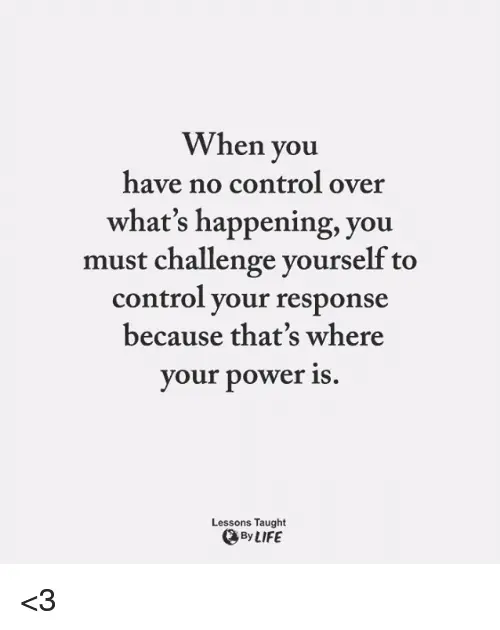
Instead of thinking about how my height is out of my control, I can think instead about things I can control.
In the dating example, I can think about things I can control next time around:
- Clothing (don’t wear that sweaty gym shirt next time)
- Greeting (make eye contact next time)
- Timing (don’t ask when it’s clear she’s late for class!)
Now all this talk about ‘control’ is definitely tricky.
Because on one hand I have to ‘let go’ of control in terms of her mood, her situation, her current relationship status, etc …
Yet then I have to ‘take control’ over things like my appearance, my actions, and my timing.
It’s difficult to know what you have control over versus what you don’t.
That’s why in Overeaters Anonymous they have a Prayer of Serenity:
God grant me the serenity to accept the things I cannot change, courage to change the things I can, and the wisdom to know the difference
4 – Giving Up Too Early
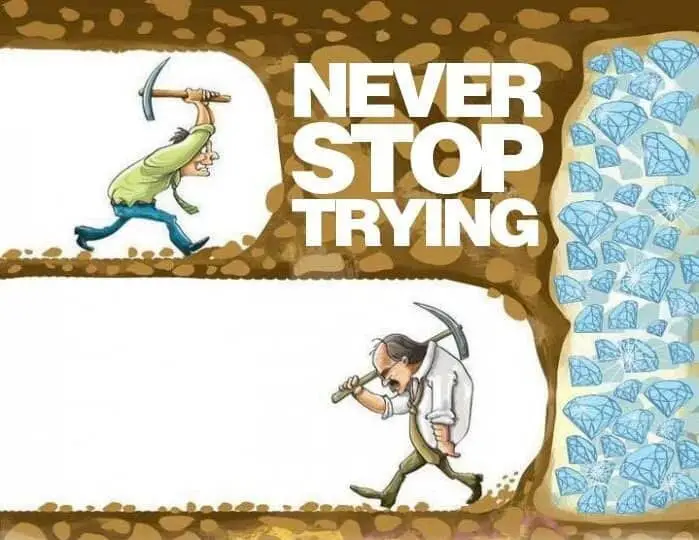
Good things take time.
To get something worthwhile, you’re going to need to focus, study, practice and try really hard for a good amount of time.
I don’t care what you’re working towards … A+ in chemistry, getting promoted, becoming more confident …
All good things take time.
If you have the expectation that life is supposed to be easy, then you’ll give up when things get tough.
And if you give up too early then you won’t see success.
And if you never see success, then you’ll become depressed because you’ll think you always fail.
What we want here is to avoid failure becoming one of your depression triggers!
How To Stop Giving Up Too Early
- Set smaller goals. Break your big goal into small ones and allow yourself to feel successful in achieving them.
- Reward the process. Give yourself time outs, take a break from studying for an hour or eat something nice when you need it (a reward doesn’t always mean buying things).
- Know that life is worth fighting for. The good stuff takes work but it’s there if you’re willing to put in the effort and keep going!
5 – Thinking Progress Is Too Slow
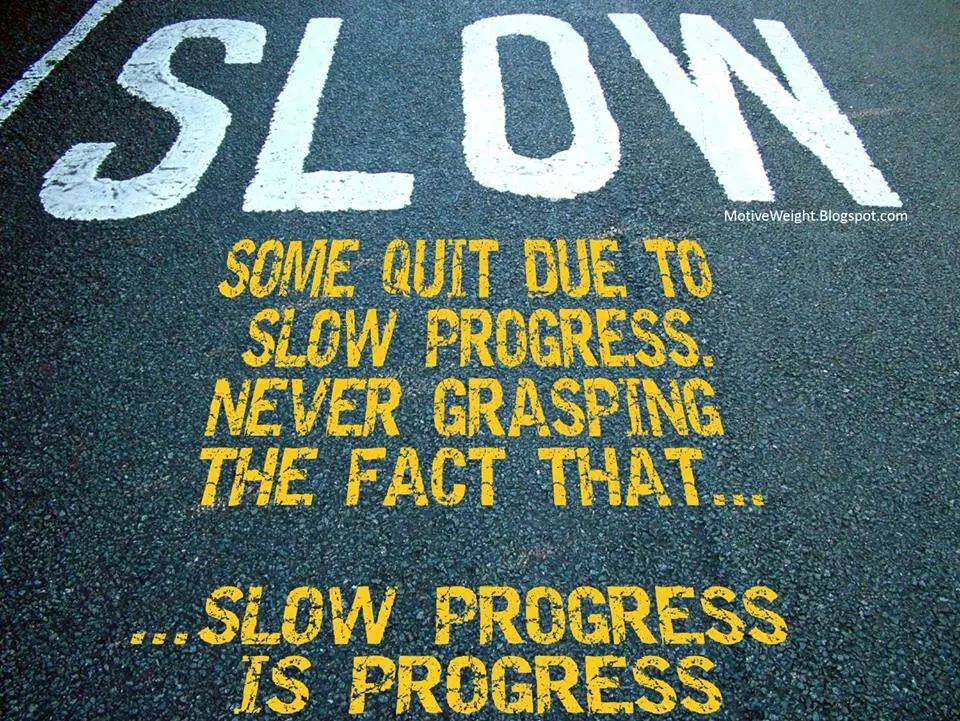
Let me tell you something about my blog. Nowadays I get around 500-700 visitors per day.
But for the first 12 months of blogging I was only getting 10 visitors per day!
Often when you are beginning something worthwhile you need to lay the foundations.
For me, I had to publish hundreds of blog articles before I started seeing any real web traffic.
As I wrote blog article after blog article … it didn’t seem like I was making progress. I could have easily given up and I do remember questioning if this all was worth it.
But I knew … I was building a really strong foundation for future blogging success!
How to Stop Thinking Progress Is Too Slow
Find the silver lining.
Life is going to teach you many painful lessons as you mature into your full potential.
These painful lessons will destroy you if you cannot learn from these mistakes or lessons.
In the beginning of anything, things are going to be very tough. You’re going to make a lot of mistakes and these mistakes will be painful.
It’s crucial you continue to learn from your mistakes! Mistakes cannot become another one of your depression triggers because if you get depressed then you won’t learn!
And if you don’t learn then you’ll just repeat the same mistake repeatedly! And eventually you will quit!
Usually thinking about your problem or goal, especially if it involves desired behavior changes, can be obtained in a few weeks or months is thinking too fast.
Good things take time, like years of time.
You need to realize patience is key. And those negative things will suck for a while.
You must continue to learn from setbacks. Realize you are going to have a lot of setbacks before you achieve anything worthwhile.
6 – Perfectionism
Depression and perfectionistic thoughts go together.
Perfection is where everything has to be exactly as you expect, otherwise you’re a failure.
But since things can never be perfect then you are always a failure. And in this mindset, things must be perfect!
Do you hear the skewed thinking here?
Perfectionism is one of the biggest depression triggers because when you fail to be perfect, then it’s proof that something is wrong with you.
But the reality is that life isn’t about being perfect and there will always be a next time for everything.
Recognize this depression trigger now because perfectionism can wreak havoc on your mental health.
How To Stop Being A Perfectionist

Here are some tips to stop being a perfectionist:
- Notice when you are trying to be perfect and then reframe what’s going on in your mind.
- Accept that mistakes happen so don’t beat yourself up about them. Depression naturally happens when we fall short so don’t set the bar so high!
- Try not to set perfection as a goal for yourself (because it will never happen). Instead, try setting reasonable goals where success is possible.
7 – Self-Fulfilling Prophecy
Depression can be a self-fulfilling prophecy.
- Because you’re in a spell of depression, you become lonely.
- Because you are lonely you become desperate for human companionship.
- Desperateness leads to people not wanting to be near you because you seem anxious.
- People avoid you because you make them feel anxious and you become more lonely and experience even more depression!
How To Stop The Self-Fulling Prophecy
- Convince yourself that you are worthy of love. Sometimes you will have to ‘fake it’ till you make it.
- Recognize that although it will be hard, people can enjoy your company and want to spend time with you even if they do not know how to help depression.
- Reach out for human companionship despite being anxious or scared about what the person might think of you in return. You deserve someone who wants to spend time with you!
And again, remember that good things take lots of time and lots of painful lessons.
Frequently Asked Questions
Now that we have covered 7 mental triggers for depressive thoughts, I want to answer some frequently asked questions about depression.
What is the number one cause of depression?
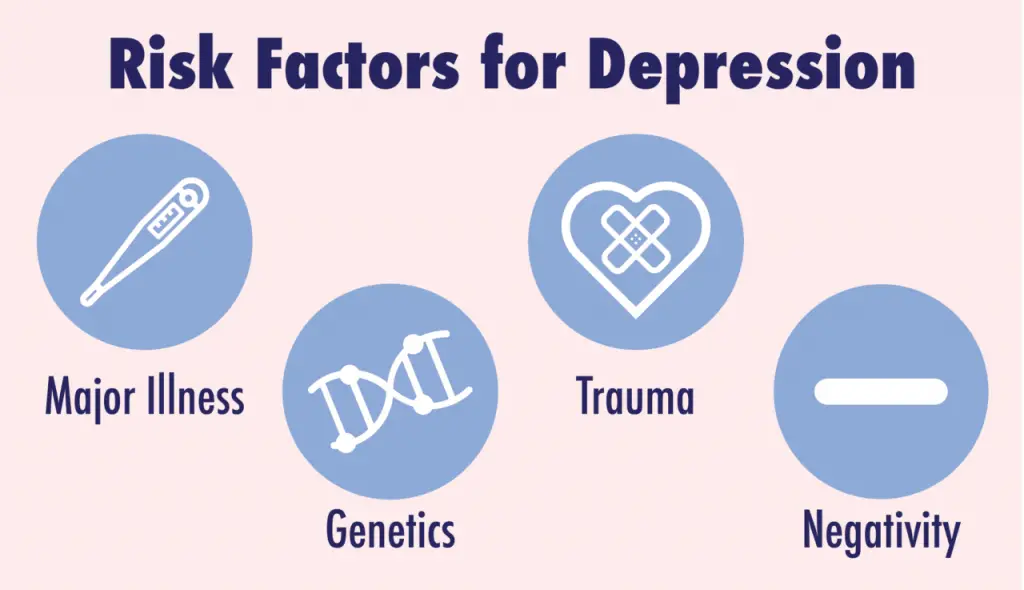
The number one cause of depression is genetics.
Genetics is the top cause of depression because of the chemicals called neurotransmitters. These chemicals are affected by your genes.
If you have a family member who has major depressive disorder, then it is possible that you may be carrying some of the same genetics for depression.
This genetic predisposition can be affected when you see depression in other people’s lives.
For example, if either parent or any sibling has depression, this can make offspring around four times more likely to suffer from depression symptoms too.
If both parents are carriers of depression genes, their children will always carry it.
Obviously not everyone experiences such severe levels of depression. But many do inherit a predisposition for genetic disorders like depression because of their family tree.
But, it’s important to recognize that you DO have control on how you RESPOND to your genetics.
If you just ‘give up’ because your parents had depression then that’s no good!
Instead, think about what you do have control over. You don’t have control over your risk for depression!
But you do have control over your actions!
Even with the worst genes, you can still make the best of things and this is what makes all the difference for your mental health.
If you want to learn more about the genetic nature of depression, please see this medically reviewed Stanford article.
Final Thoughts About Mental Health and Depression Triggers
We all experience some of these feelings at times.
Yet, we can learn to work with them in a positive way and not let our emotions take control.
Read this article about howmindfulness can help you move past rumination and negative thinking patterns that may be holding you back from achieving your goals or meeting your potential.
Finally, depression can be extraordinarily difficult to treat.
There is absolutely ZERO shame or problem in needing additional advice, diagnosis or treatment.
If you have a history of depression, or if you suffer from low self esteem, and you have frequent depressive episodes, then please seek medical advice.
Medical advice, diagnosis, and appropriate treatments for depression are available!
But … sometimes the hardest part if you are already in a depression spell is asking for help.
So if you have read this far and know you need help, then don’t hesitate to reach out while you’re here!


